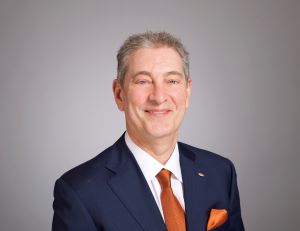Strategic Persistence: How Professional Advocacy Shapes Policy Change
 Showing up, speaking out, and staying engaged matters—now more than ever.
Showing up, speaking out, and staying engaged matters—now more than ever.
Advocacy is more than just lobbying—it’s the power of citizens and professionals, like you, speaking out for what matters most. In this case, your patients, your practice, and the integrity of your profession.
We most often associate advocacy with lobbying corporations, such as Big Pharma, insurance, oil and gas, and tobacco, as these industries are known for influencing legislation through deep pockets and high-powered lobbyists. So we naturally associate ‘advocacy’ with negative connotations.
But that’s not the whole picture.
While it’s easy to think, “Why do I need to sign on to this? How can one endodontist affect policy on such a global scale?”, recent “wins” in dentistry demonstrate that meaningful policy change doesn’t always come from large industry—it often starts with individuals like you.
When Grassroots Advocacy Works: Ohio’s Specialty Law Scare
While large-scale lobbying dominates headlines, real impact often starts at the grassroots level. Such was the case in my own state of Ohio, where endodontists recently faced a quiet but serious threat to our profession.
An implant organization recently petitioned the state dental board to alter the definition of dental specialties. Their proposal would allow any dentist—regardless of formal postdoctoral training—to market themselves as a “specialist” after completing a weekend course and receiving a certificate. This change would blur the line between dentists who have undergone years of rigorous, accredited specialty training and those who have completed brief, non-accredited programs, often held at resort-style seminars. Under the proposed rule, a dentist could attend a short course on implant placement and then advertise themselves as an “implantologist”—despite the fact that no such recognized dental specialty exists.
Through local grassroots efforts, the AAE, the Ohio Association of Endodontists (OAE), and eventually other specialty groups and the ADA, mobilized quickly. Together, they petitioned the State Dental Board and the Governor to halt the changes. AAE provided template letters, built email campaigns, and made it easy for Ohio endodontists to speak out. The message: “This proposal was not aligned with the Board’s mission—to protect patient care” was clear, coordinated, and convincing—and it worked.
Ultimately, the dental board chose not to proceed with the change — for now. But make no mistake—it’s a temporary win. It’s important to recognize that if this were to pass in Ohio, other states would quickly follow in a snowball effect. The threat isn’t theoretical—it’s ongoing.
Advocacy at the Federal Level: PTET and Financial Equity
Another major advocacy effort came with the recent “Big Beautiful Bill” in Congress, which threatened to eliminate the pass-through entity tax (PTET) deduction. This deduction has been essential for most dental practices, especially in high-tax states like New York and California, where the state and local tax (‘SALT’) cap disproportionately affects small and mid-sized business owners. Preserving the PTET tax deduction matters because:
- Most endodontic practices operate as pass-through entities—solo or small group practices.
- PTET allows practice owners to reduce their federal taxable income, easing the overall tax burden.
- More capital remains in the practice allowing for reinvestment in equipment, staffing, continuing education, and patient care initiatives.
- It helps level the playing field with large dental service organizations (DSOs) and corporate dental models, which may already benefit from different tax structures and economies of scale.
In essence, this provision helps ensure that endodontists can remain competitive, independent, and focused on clinical excellence. Their financial sustainability is a public health win and a strategic reinforcement of the patient-centered dental model.
This legislative outcome underscores the power and necessity of professional advocacy. Organizations like the AAE and other dental coalitions played an active role in educating lawmakers about how tax policy directly affects access to specialty dental care. Thanks to AAE and ADA advocacy, members were encouraged to contact legislators using pre-filled forms and tailored messaging. It worked. The deduction was preserved.
This was the largest grassroots advocacy effort the AAE has ever participated in and it was successful — Because of you!
We Still Have Work To Do
Don’t misunderstand, there is still much work to do.
- Ohio’s dental board will revisit the specialty rule. As will other states.
- Two states have already removed fluoride from municipal water supplies. More will follow.
- Tax, regulatory, and access-to-care issues continue to emerge. And re-emerge.
These issues, and others, will require us to act again. To mobilize. To show up. To speak up. To spread the word repeatedly about what is best for our patients and our practices.
As the policy landscape continues to evolve, dental professionals must stay engaged—working together to amplify our voices on healthcare, regulatory, and tax issues that shape the future of our profession. So the next time you think, “Why should I bother?”, remember this:
You already made a difference. And you can again.
